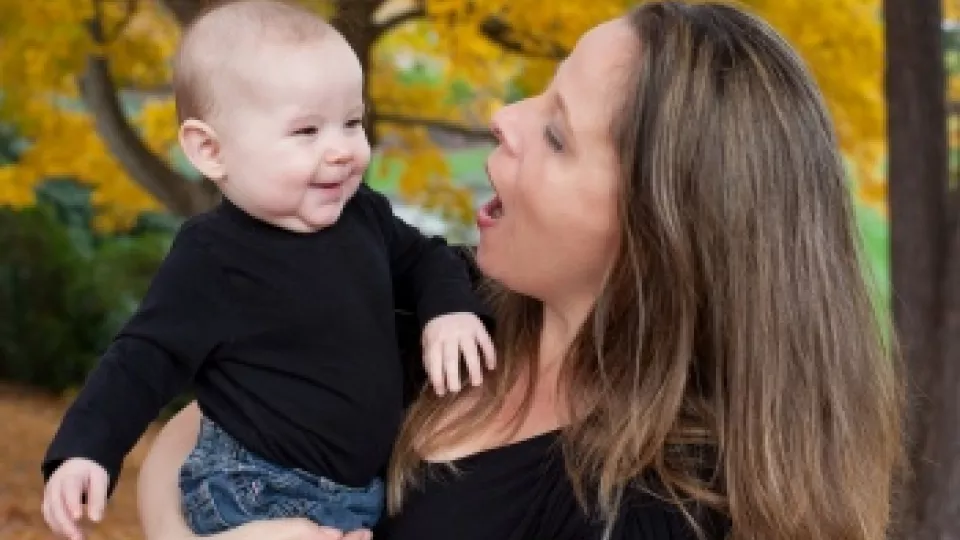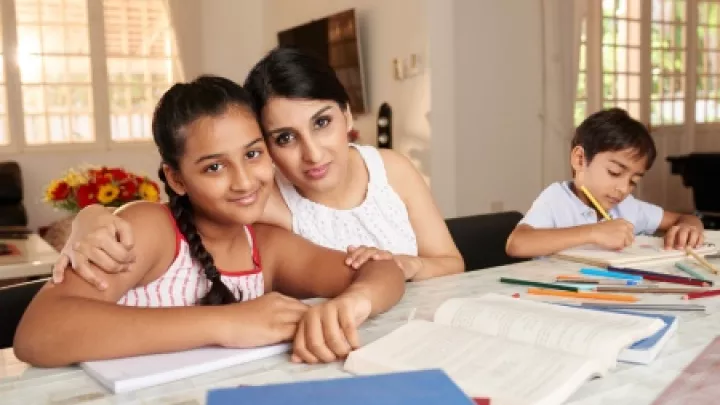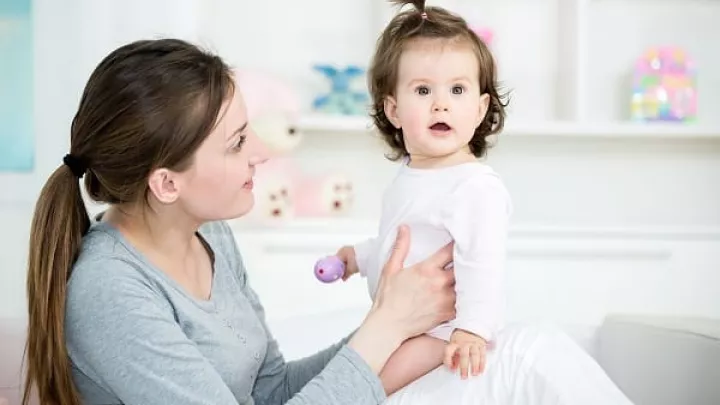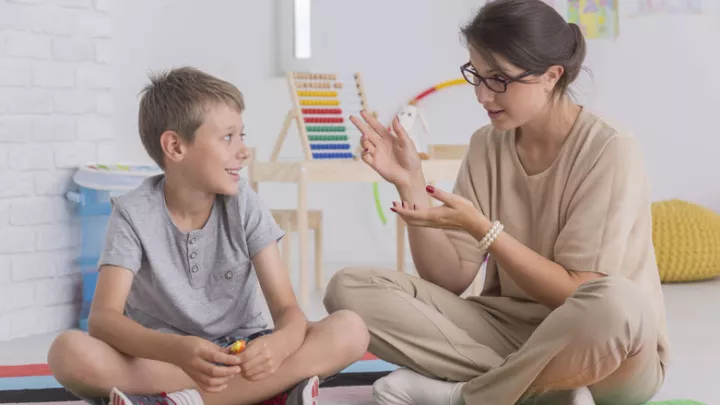When Should My Child Start Talking?
As a speech-language pathologist, I often get asked by parents, “When should my child start talking?” Although every child progresses at their own pace, these are some guidelines for typical development.
Birth to 3 months:
Crying is your baby’s first form of communication. Your baby may produce a variety of cries to indicate different needs including hunger or a diaper change.
4 to 6 months:

At this stage, your child should begin to babble (combining consonants and vowels such as “baba” or “mama”). While you may hear “mama” or “dada” at this stage, your baby does not yet equate these words (this typically comes around 1 year). Your baby’s attempts at talking may begin to sound like monologues in another language as they experiment in making a variety of noises with their tongue, teeth, palate and vocal folds.
7 to 12 months:
Around this stage, your child may sound like they are making more sense, as they are trying out a variety of tones and patterns similar to yours. Foster your child’s babbling by talking and reading to him. At about 9 months, your child is beginning to understand gestures, pointing and grunting to indicate his wants. Your child may begin to comprehend a few words including some everyday objects like bottle, bed, etc.
13 to 18 months:
Your child should be using one or more words and demonstrate an awareness of what they mean. Your child may begin practicing inflection/raising their tone when asking questions. Their vocabulary will gradually expand and is typically characterized by nouns, followed by an increase in verbs.
19 to 24 months:
This is often the period where children may have a “language explosion” and your child may understand far more than what they are saying. Your child is picking up new words every day and may begin stringing together two words such as “more milk.”
25 to 36 months:
Your child may begin to understand pronouns including “I,” “me,” and “you.” Your child should begin stringing together nouns and verbs to formulate simple sentences. By age 3, your child should be able to carry on a conversation and you should be able to understand most of what they say.
How to help your baby talk:
- Talk. Describe what you are doing, point things out, ask questions and sing songs. Babies learn by listening, so narrate your day. The more words he hears, the more he will understand.
- Read. Reading to your child is a great way to introduce new vocabulary and sentence formulations.
- Sing. Nursery rhymes, action songs and lullabies are a great way to introduce language. Add in accompanying actions and your child may join in.
- Listen. When your child talks, be a good listener. Look at him and be responsive. They are more likely to speak up and develop the confidence to talk when they know you’re interested in what they are saying.
- Elaborate. When your child uses one word, respond back in a full sentence.
- Take turns. Conversations are about taking turns, so engage your child in turn-taking games such as peek a boo
What to do if your baby appears to be behind on these milestones?
If you are concerned about your child’s speech development, speak with your health care provider to discuss the possibility of a language delay. Your healthcare provider can refer you to a speech-language pathologist to further assess. You may find additional support from your school district that can direct you to an early intervention program.


